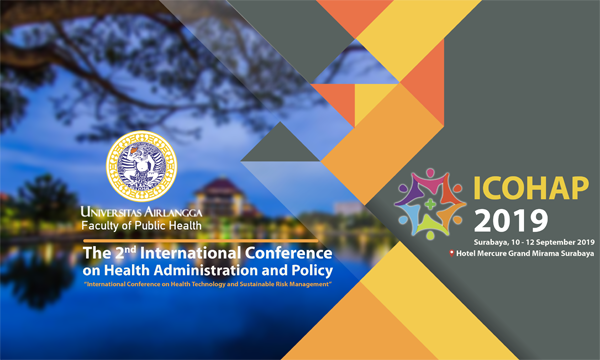Risk is the possibility of damage, injury or effects caused by vulnerabilities which can actually be avoided by preventive efforts. Human interaction with the health system poses a threat to them mainly due to increasingly complex technology, complex procedures, high demand for health services, high expectations from users of health services and the many interests of each health provider.
Given that every organization faces challenges in running its organization, risk management must be a top priority, especially organizations engaged in health services, for which organizations must have health risk managers who are qualified to assess, develop, implement and monitor risk management plans with the aim of minimizing the risk to users of health services.
Risk is the possibility of damage, injury or effects caused by vulnerabilities which can actually be avoided by preventive efforts. Human interaction with the health system poses a threat to them mainly due to increasingly complex technology, complex procedures, high demand for health services, high expectations from users of health services and the many interests of each health provider.
With the JKN program entering the era of universal health coverage in 2019 and a paradigm shift in the new accreditation standards, the role of leaders and owners of health providers is very large to keep health providers able to sustain and develop in the future with all the challenges and competition by utilizing high technology in the health sector but still able to control quality and control costs
Continuing the success of the implementation of ICoHAP 1 in 2018, the Faculty of Public Health of Airlangga University intends to re-organize this ICoHAP 2 in 2019 with the theme: “International Conference on Health Technology and Sustainable Risk Management”
We took the above theme considering that in 2019 JKN entered the 5-year implementation period and the era of Universal Health Coverage where all Indonesian people must be covered by JKN. And there are also new accreditation standards that prioritize risk management and the use of high technology. Of course this is a new challenge, and health service leaders must prepare it all.
This conference aims to improve the competence of policy makers in hospitals and FKTP in order to develop strategies to face challenges and competition towards quality hospitals and FKTPs in the era of Universal Health Coverage in 2019.
The conference that will be held is the awareness of the university and the scientific community to disseminate knowledge to the public, including academics and practitioners in the health sector. The conference will feature competent speakers in their respective fields from abroad as well as from within the country and invite participants to submit research abstracts and other scientific papers (as abstract submissions).

